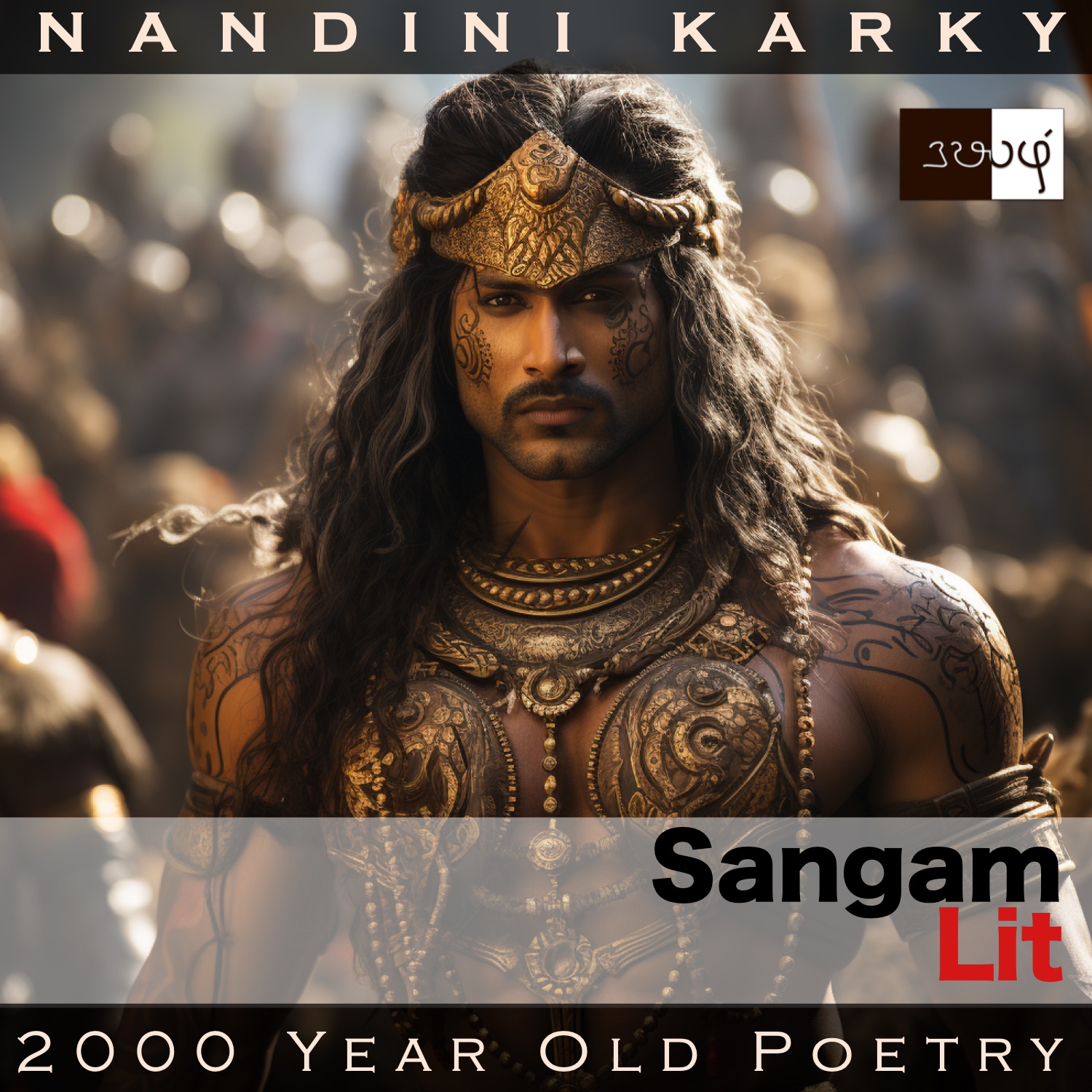Podcast: Play in new window | Download
Subscribe: Apple Podcasts | Spotify | Amazon Music | Android | iHeartRadio | Email | TuneIn | RSS | More
In this episode, we perceive a poet’s anger towards Death, as depicted in Sangam Literary work, Puranaanooru 227, penned about the Chozha King Kulamuttrathu Thunjiya Killivalavan by the poet Aavaduthurai Maasaathanaar. The verse is situated in the category of ‘Pothuviyal Thinai’ or ‘Common Themes’ and expresses despair at the king’s demise in a unique manner.

நனி பேதையே, நயன் இல் கூற்றம்!
விரகு இன்மையின் வித்து அட்டு உண்டனை;
இன்னும் காண்குவை, நன் வாய் ஆகுதல்;
ஒளிறு வாள் மறவரும், களிறும், மாவும்,
குருதி அம் குரூஉப் புனல் பொரு களத்து ஒழிய,
நாளும் ஆனான் கடந்து அட்டு, என்றும் நின்
வாடு பசி அருத்திய வசை தீர் ஆற்றல்
நின் ஓர் அன்ன பொன் இயல் பெரும் பூண்
வளவன் என்னும் வண்டு மூசு கண்ணி
இனையோற் கொண்டனைஆயின்,
இனி யார் மற்று நின் பசி தீர்ப்போரே?
In this series of songs revolving around the theme of a reaction to a regent’s loss, we hear from a different poet about the same Chozha king Killivalavan. The poet’s words can be translated as follows:
“You are too foolish, O ungracious Death! Having nothing for sustenance, you seem to have eaten the crop-bearing seed and ended it forever! You will see my words come true hereon too. As soldiers with shining swords, elephants and horses perished in that raging battlefield, where streams of blood flowed, day after day unceasingly he killed with impeccable skill and rendered to you to appease your terrible hunger. He is the one, who is akin to you, wearing great golden ornaments and bee-buzzing garlands, with the name of ‘Valavan’. Now that you have taken away a man with such a nature, who is there to end your hunger hereafter?”
Let’s delve deeper into the words. Without beating around the bush, the poet comes straight to the point and calls Death a fool. Then, he goes on to present a striking metaphor about the act of a farmer, who upon finding no food, decides to eat the last remaining seeds, which were set aside to raise a crop in his field. This is exactly what Death seems to have done, the poet says. He predicts that Death is going to realise the deep truth of this statement very soon. Then, the poet transports us to a furious battlefield, where soldiers, elephants and horses are falling dead and blood seems to be flowing like river streams. In many such battlefields, it was this King Valavan who ended his enemies and made Death feast on their remains, the poet connects, and concludes with a question to Death asking, ‘Who on earth is going to slay your hunger now?’
The metaphor used by the poet about a farmer eating his crop seed in a moment of hunger, made me think of the idiom ‘killing the goose that lays the golden eggs’, which arose out of one of Aesop’s fables. We can infer this relevant reminder about the danger of greed, reflecting from multiple traditions through these tales many. What other thing struck me as interesting here is the casual way the poet talks about the king as being a killer in the battlefield, calling him the epitome of Death itself. According to this poet from two thousand years ago, this was high praise for the courage of the king, whereas, to us, in the twenty-first century, calling a person as the instigator of death and bloodshed is nothing more than condemnation! This makes me wonder what taken-for-granted moniker of praise said to someone today is going to make people shudder, two thousand years from now!




Share your thoughts...